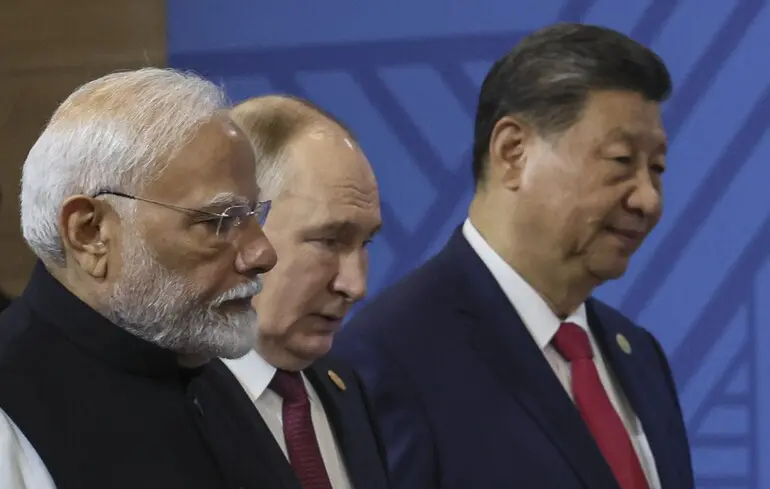Shanghai Cooperation Organization Summit in Tianjin: Key Guests, Political Dynamics, and Future Global Trends

In the heart of the Asia-Pacific region, a significant diplomatic event is taking place — the Shanghai Cooperation Organization (SCO) summit held in Tianjin from August 31 to September 1.
This forum, gathering over twenty world leaders and prominent politicians, marks a new chapter in the organization’s development, which has become one of the largest platforms for South Global cooperation.
Among the main guests are Russian President Vladimir Putin and Indian Prime Minister Narendra Modi.
Their meetings and negotiations during this summit carry strategic importance for shaping the future of regional and global alliances.The key goal of the summit is to project unity and stability among the member nations, as well as to build a counterbalance to the global influence of the United States and Western countries.
Attention is focused on strengthening regional ties with Southeast Asia, the Middle East, and South Asia, while seeking common approaches to geopolitical challenges and economic cooperation.Particularly notable is the participation of Russian leader Vladimir Putin, as this summit provides Moscow with one of the few diplomatic platforms remaining open under Western sanctions.
For the first time in nearly seven years, India’s Prime Minister Narendra Modi will visit China, a significant development given the recent border tensions.
Analysts believe that the diplomatic relationship between India and China is gradually thawing following clashes in 2020, with discussions likely to include economic and military cooperation.This summit is arguably the largest since the SCO’s founding in 2001.
China emphasizes the importance of the organization, calling it “a powerful force in shaping a new model of international relations.” Over two decades, the SCO has evolved from a security-focused platform for six Eurasian countries to a vast organization with ten permanent members and sixteen observer and dialogue partner states, thus expanding its global influence.Expansion remains a priority for many member states.
China advocates for stronger solidarity within the Global South against U.S.
policies, especially amid ongoing tensions between India and Pakistan, which have repeatedly blocked joint statements.
For example, in June, defense ministers failed to agree on a final document due to India’s insistence on mentioning the situation in Kashmir.Analyst Erik Olander from The China-Global South Project points out that this summit is about signaling a shift in the global order, highlighting China, Russia, and Iran’s roles in new geopolitical realities, and showcasing the efforts of Washington to isolate these countries have failed.
Besides diplomatic rhetoric, participants aim to reach concrete agreements on reducing tensions, easing trade restrictions, and strengthening cooperation on security.Overall, the Tianjin SCO summit reflects ongoing global processes.
It offers an opportunity for South Global nations to demonstrate their emerging influence and to become part of a broader power center.
While China prepares for a major military parade showcasing its armed forces, the diplomacy behind the scenes shapes the future of a world moving toward multipolarity.

